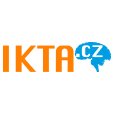
Nationwide registry of stroke patients: a non-interventional multicentre prospective study.
start of the project: 01/2010
A stroke, also known as a cerebrovascular accident (CVA), is the rapid loss of brain function(s) due to disturbance in the blood supply to the brain. This can be due to ischaemia caused by blockage (thrombosis, arterial embolism), or a haemorrhage. As a result, the affected area of the brain cannot function, which might result in an inability to move one or more limbs on one side of the body, inability to understand or formulate speech, or an inability to see one side of the visual field. A stroke can also be fatal.
Both nationwide and worldwide, stroke is the leading cause of death and permanent disability. The incidence rate in the Czech Republic is about 300 cases per 100,000 inhabitants, and the mortality rate is almost double the European average, particularly in men aged 40-65. Around 40% of stroke patients die within one year. Czech stroke mortality and morbidity rates are among the highest worldwide, and the issue is even more pressing with respect to recent epidemiological studies which have shown an increase in morbidity rates in younger people in the US and in Europe.
The main objective of the IKTA.CZ registry is to collect and to analyse data on epidemiology, acute treatment, long-term treatment, as well as primary and secondary stroke prevention nationwide. The parametric structure of the registry is fully compatible with the European Stroke Database (ESDB), which will enable an objective comparison of all monitored aspects of stroke in the Czech Republic and in other European countries.
The registry was established in January 2010 as a part of the Czech National Cerebrovascular Programme, and has been associated with the formation of specialized stroke centres (acute health care units for stroke patients). Epidemiological data on stroke in different regions of the Czech Republic might play a significant role in designing a network of such centres, their structure and capacity.
- Expert guarantor: Assof Prof Zbynek Kalita, MD, PhD (Czech Society of Neurology)
- Funding: Education for Competitiveness Operational Programme (ECOP): Educational network of stroke centres (CZ.1.07/2.4.00/12.0046)
- Partners: 38 stroke centres in the Czech Republic (the comprehensive list – in Czech language only – is available on the website of the IKTA.CZ project)
- Brief overview of results: you can find more detailed information – in Czech language only – on the website of the IKTA.CZ project
- Anaesthesiology, intensive care medicine
- Cardiology, angiology
- Diabetology, dietetics
- Educational projects
- Emergency medicine, toxicology
- Endocrinology, metabolism
- Gastroenterology, hepatology
- Haematology, haematological oncology
- Immunology, allergology
- Medical genetics
- Nephrology
- Neurology, neurosurgery
- Nursing care
- Obstetrics, gynaecology
- Oncology, radiotherapy
- Ophthalmology
- Paediatrics, neonatology
- Pathology, laboratory medicine
- Pulmonary medicine
- Rheumatology, physiotherapy
- Screening programmes
- Surgery, traumatology, orthopaedics
- Urology
